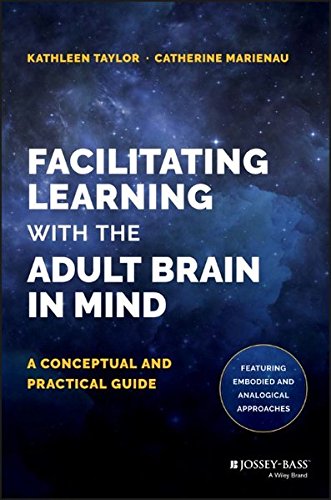

Most ebook files are in PDF format, so you can easily read them using various software such as Foxit Reader or directly on the Google Chrome browser.
Some ebook files are released by publishers in other formats such as .awz, .mobi, .epub, .fb2, etc. You may need to install specific software to read these formats on mobile/PC, such as Calibre.
Please read the tutorial at this link. https://ebooknice.com/page/post?id=faq
We offer FREE conversion to the popular formats you request; however, this may take some time. Therefore, right after payment, please email us, and we will try to provide the service as quickly as possible.
For some exceptional file formats or broken links (if any), please refrain from opening any disputes. Instead, email us first, and we will try to assist within a maximum of 6 hours.
EbookNice Team

Status:
Available4.3
41 reviewsFacilitating Learning with the Adult Brain in Mind explains how the brain works, and how to help adults learn, develop, and perform more effectively in various settings. Recent neurobiological discoveries have challenged long-held assumptions that logical, rational thought is the preeminent approach to knowing. Rather, feelings and emotions are essential for meaningful learning to occur in the embodied brain. Using stories, metaphors, and engaging illustrations to illuminate technical ideas, Taylor and Marienau synthesize relevant trends in neuroscience, cognitive science, and philosophy of mind. Readers unfamiliar with current brain discoveries will enjoy an informative, easy-to-read book. Neuroscience fans will find additional material designed to supplement their knowledge.
Many popular publications on brain and learning focus on school-aged learners or tend more toward anatomical description than practical application. This book provides facilitators of adult learning and development a much-needed resource of tested approaches plus the science behind their effectiveness.
Compared with other books on brain and learning, this volume includes dozens of specific examples of how experienced practitioners facilitate meaningful learning. These "brain-aware" approaches can be adopted and adapted for use in diverse settings. Facilitating Learning with the Adult Brain in Mind should be read by advisors/counselors, instructors, curriculum and instructional developers, professional development designers, corporate trainers and coaches, faculty mentors, and graduate students—in fact, anyone interested in how adult brains learn.